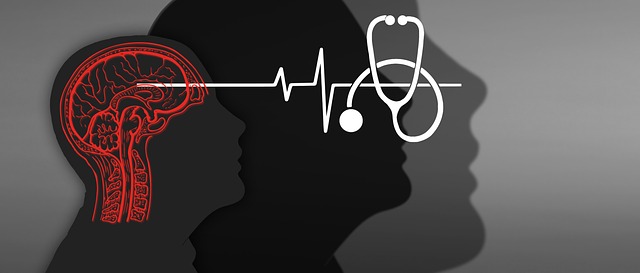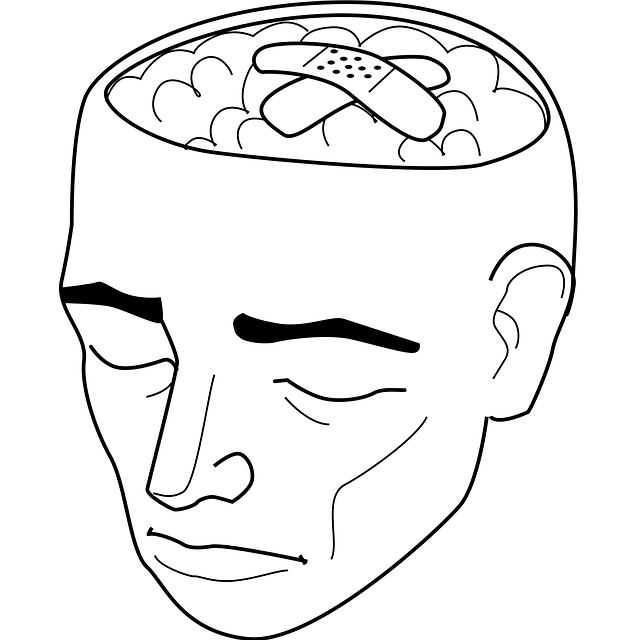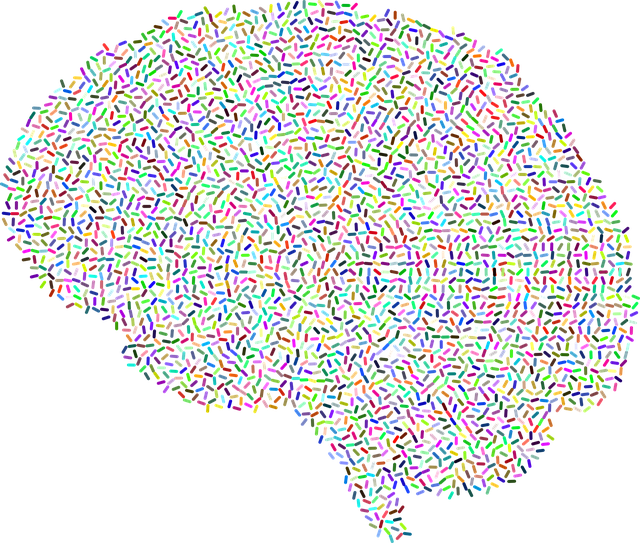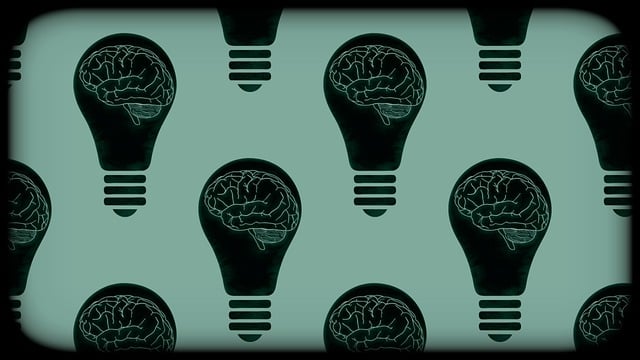Colorado Springs is leveraging innovative techniques like Colorado Springs Cognitive Processing Therapy (CPT) to enhance mental health diagnosis accuracy. Combining CPT with Self-Care Routine Development, Resilience Building, and Crisis Intervention Guidance offers nuanced support for anxiety disorders and PTSD. Digital tools, Mental Wellness Coaching Programs, and educational resources further improve treatment plans, ensuring precise diagnoses and personalized care tailored to the local community's needs.
Mental illness diagnosis accuracy is a critical aspect of healthcare, yet it faces numerous challenges. This article delves into strategies aimed at enhancing diagnostic reliability, focusing on the Colorado Springs Cognitive Processing Therapy (CPT) approach. We explore innovative techniques, including digital tools and advanced training programs. By integrating CPT and modern technology, mental health professionals can improve assessment accuracy, leading to better patient outcomes. These efforts underscore the importance of precise diagnosis in managing mental health conditions effectively.
- Understanding the Challenges of Mental Illness Diagnosis
- The Role of Colorado Springs Cognitive Processing Therapy (CPT) in Enhancing Accuracy
- Innovative Techniques for Improving Diagnostic Reliability
- Integrating Technology: Digital Tools for More Precise Assessments
- Training and Education: Empowering Professionals for Better Diagnosis
Understanding the Challenges of Mental Illness Diagnosis

Diagnosing mental illnesses accurately can be a complex task due to the intricate nature of human cognition and behavior. Each individual’s experience with mental health conditions is unique, making it challenging to employ a one-size-fits-all approach. Factors like cultural background, personal history, and environmental influences can significantly impact the presentation and manifestation of symptoms. For instance, what may be indicative of depression in one person could differ from another, potentially leading to misdiagnosis or delayed treatment.
In Colorado Springs, Cognitive Processing Therapy (CPT) has emerged as a valuable tool in addressing these challenges. CPT focuses on helping individuals identify and modify negative thought patterns, enhancing their ability to process traumatic experiences and manage symptoms effectively. By combining this therapy with Self-Care Routine Development for Better Mental Health and Resilience Building strategies, professionals can provide more nuanced support. Additionally, Crisis Intervention Guidance plays a crucial role in ensuring individuals receive prompt assistance during acute episodes, further improving diagnosis accuracy and overall mental health outcomes.
The Role of Colorado Springs Cognitive Processing Therapy (CPT) in Enhancing Accuracy

The Colorado Springs Cognitive Processing Therapy (CPT) is making significant strides in improving mental illness diagnosis accuracy, particularly for conditions like anxiety disorders. This therapeutic approach focuses on identifying and modifying negative thought patterns, which are often at the root of mental health struggles. By helping individuals challenge distorted cognitions and replace them with more realistic and positive thoughts, CPT enhances overall well-being. Through this process, patients gain valuable tools for self-care routine development, enabling them to better manage their symptoms and improve their quality of life.
The effectiveness of CPT lies in its structured framework that facilitates active engagement in the therapeutic process. This not only promotes positive thinking but also empowers individuals to take a more proactive role in their mental health journey. By addressing underlying cognitive issues, CPT offers lasting solutions for anxiety relief, ultimately contributing to more precise diagnoses and tailored treatment plans.
Innovative Techniques for Improving Diagnostic Reliability

In the pursuit of enhancing mental illness diagnosis accuracy, innovative techniques have emerged as powerful tools. One such approach gaining traction is Cognitive Processing Therapy (CPT), offered in cities like Colorado Springs. CPT focuses on identifying and modifying negative thought patterns, improving patients’ ability to process traumatic memories, and fostering healthier coping mechanisms. This evidence-based therapy has shown promise in reducing symptoms of post-traumatic stress disorder (PTSD) and other anxiety disorders, ultimately enhancing diagnostic reliability by providing a structured framework for understanding and addressing complex mental health concerns.
Complementing CPT, the development of Mental Wellness Coaching Programs and the production of the Mental Wellness Podcast Series have contributed to a holistic improvement in mental wellness support. These initiatives promote positive thinking, self-awareness, and resilience through accessible educational resources and individualized coaching. By combining evidence-based therapy with modern communication tools, healthcare professionals can ensure more precise diagnoses and tailored treatment plans for individuals navigating mental health challenges.
Integrating Technology: Digital Tools for More Precise Assessments

In recent years, integrating technology into mental health assessments has emerged as a promising strategy to enhance diagnosis accuracy. Digital tools and platforms offer a range of benefits, particularly in areas like Colorado Springs where access to specialized therapy, such as Cognitive Processing Therapy (CPT), is crucial. Online assessment tools can provide more comprehensive evaluations by utilizing advanced algorithms and artificial intelligence to analyze patient data, including self-reported symptoms, behavioral patterns, and even physiological indicators. This enables mental health professionals to make more precise diagnoses and tailor treatment plans accordingly.
Furthermore, digital interventions like Compassion Cultivation Practices and Self-Care Practices can be seamlessly integrated into therapy sessions via online platforms. Community outreach programs can also leverage technology to reach a broader audience, ensuring that individuals in remote areas or those facing barriers to accessing traditional services receive the support they need. By combining advanced technology with evidence-based therapies, mental health care in Colorado Springs is evolving to provide more efficient and effective treatments.
Training and Education: Empowering Professionals for Better Diagnosis

In an effort to enhance mental illness diagnosis accuracy, training and education play a pivotal role in empowering professionals. Mental health providers in Colorado Springs can benefit from specialized programs that focus on advanced techniques such as Cognitive Processing Therapy (CPT). CPT not only equips therapists with tools to help clients process traumatic experiences but also fosters self-awareness exercises that aid in accurate assessment. By integrating these evidence-based practices into their repertoires, professionals can improve diagnostic capabilities and tailor treatment plans more effectively.
Additionally, well-designed Mental Health Education Programs can bridge the gap between theoretical knowledge and practical application. These programs should encompass not just the latest research but also real-world scenarios relevant to Colorado Springs’ unique demographic and cultural context. Enhancing mental health awareness through such initiatives ensures that both professionals and the community at large are better equipped to recognize and address various forms of mental illness, ultimately leading to more precise diagnoses and improved patient outcomes.
Mental illness diagnosis accuracy is a complex issue, but with concerted efforts and innovative solutions, significant improvements can be made. By combining traditional methods like Colorado Springs Cognitive Processing Therapy (CPT) with modern digital tools and robust training programs, healthcare professionals can enhance reliability and efficacy in mental health assessments. These integrated approaches aim to better support individuals seeking help and ensure more accurate, timely, and effective diagnoses, ultimately improving patient outcomes.














